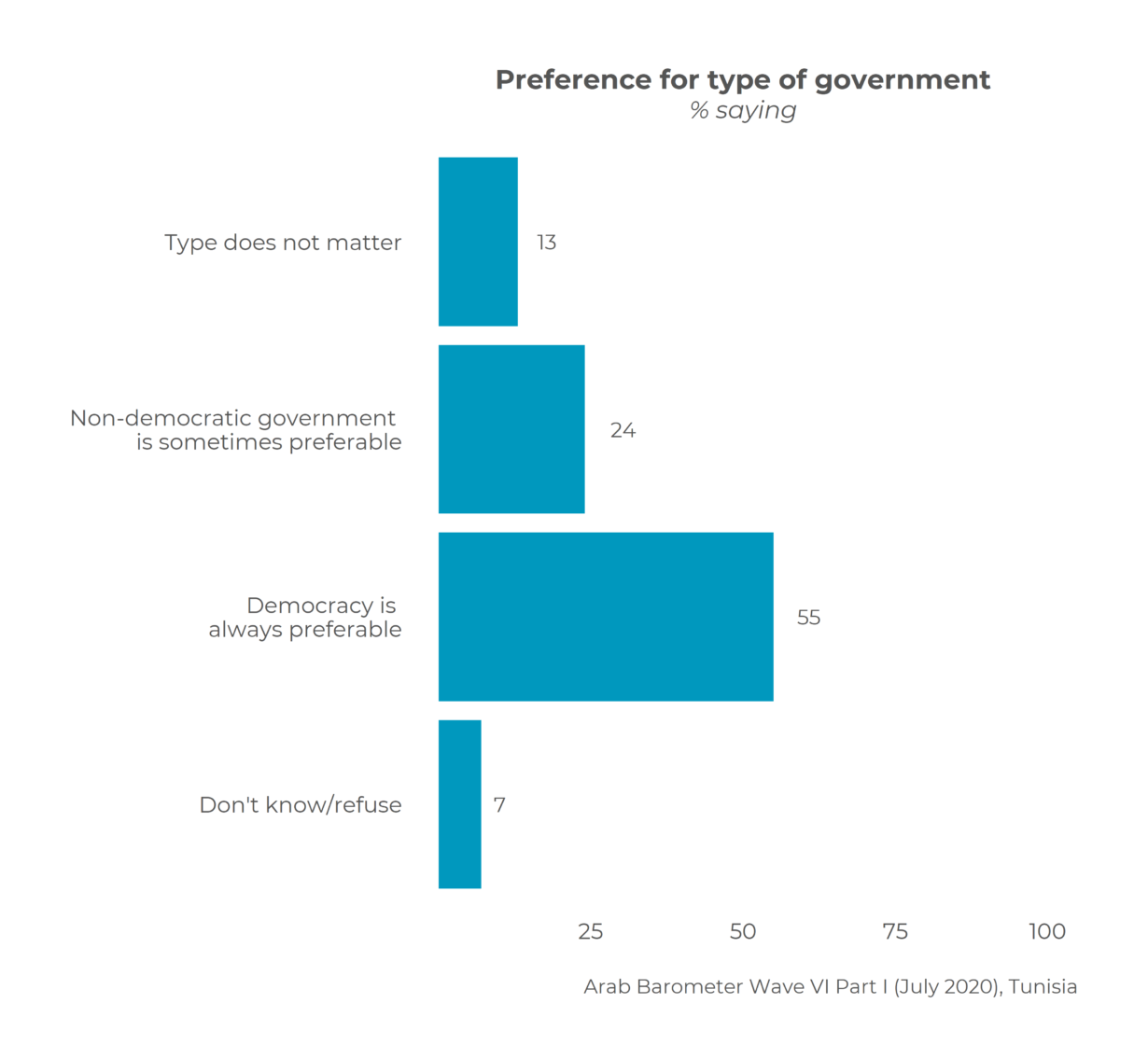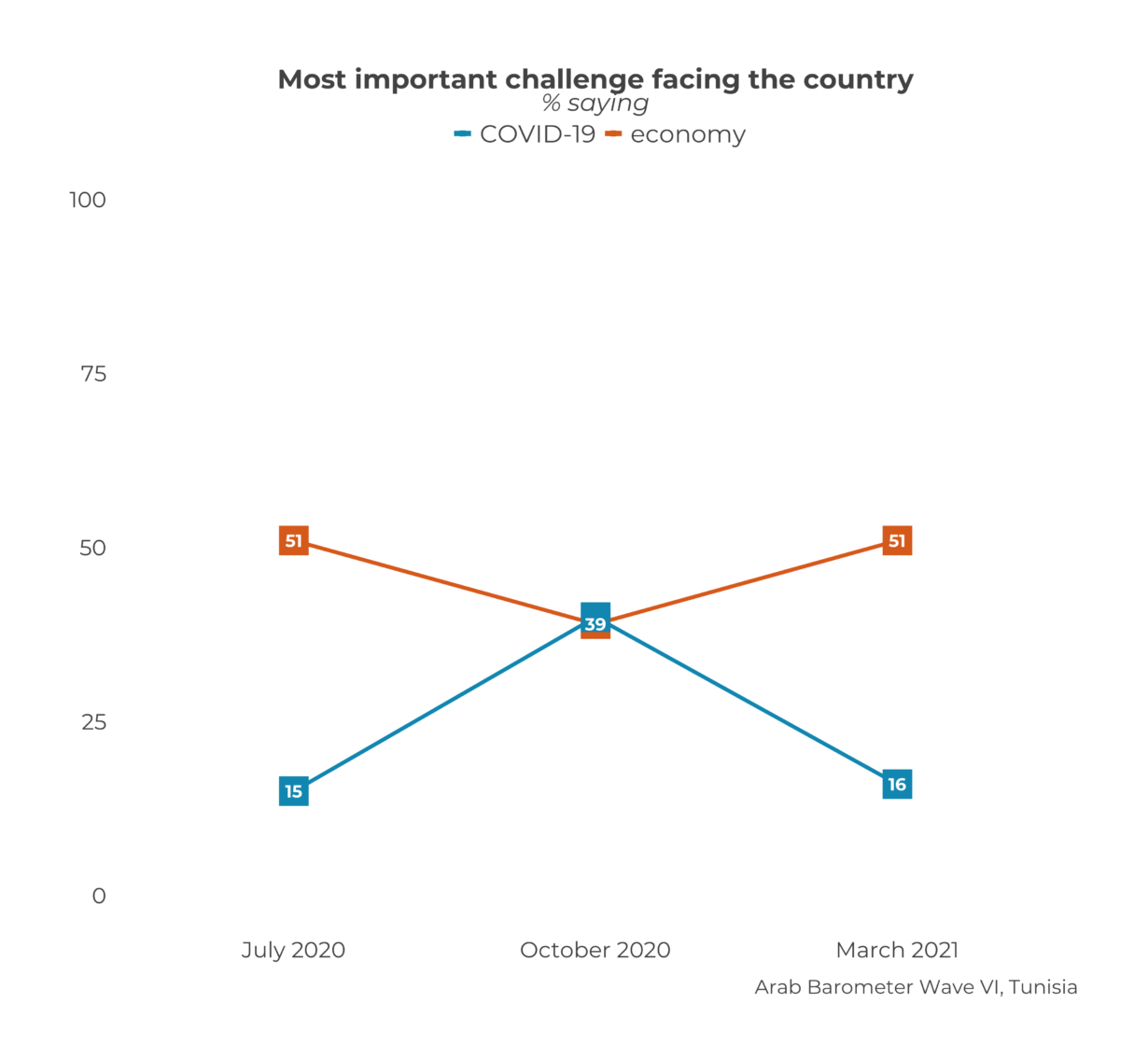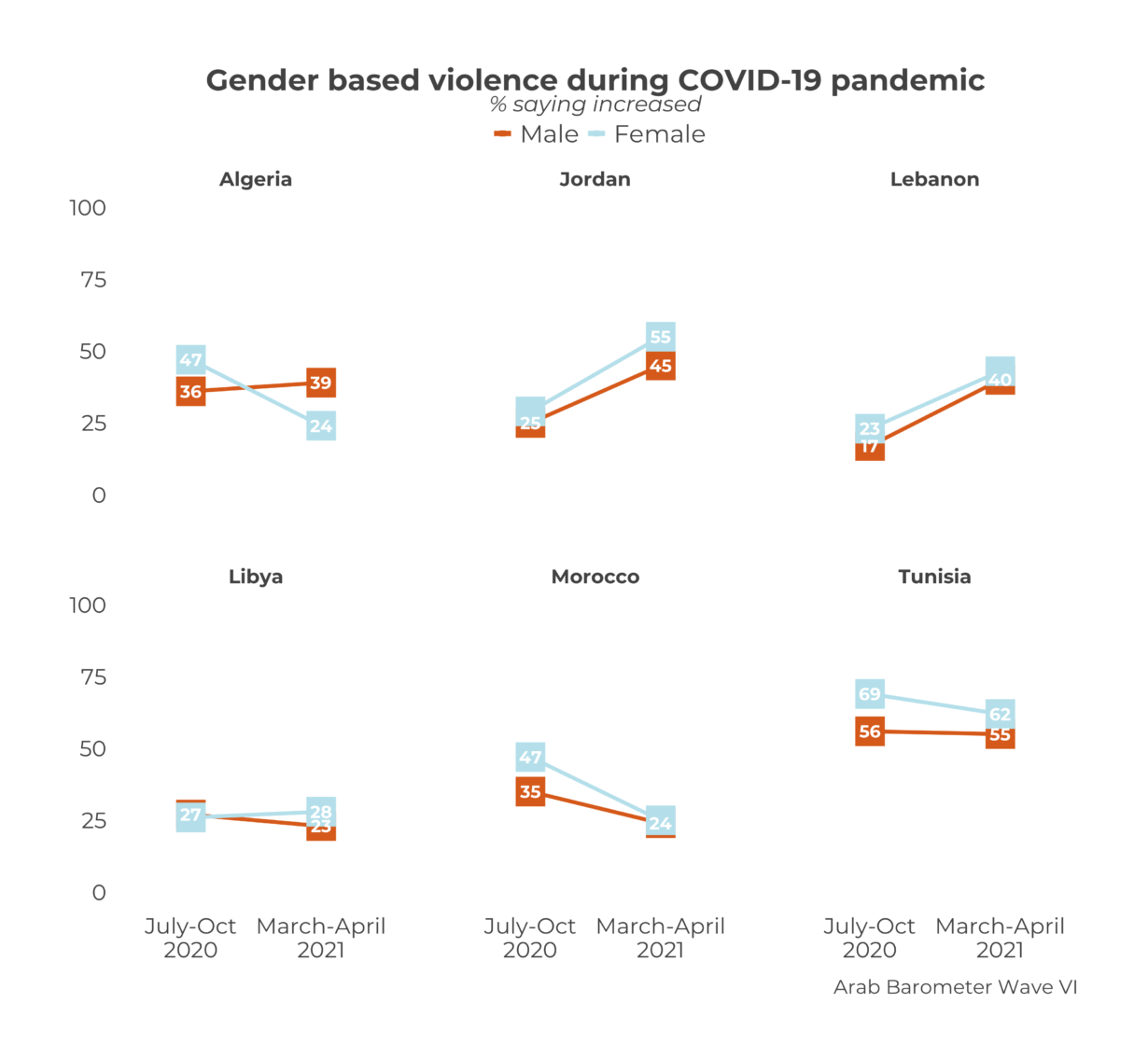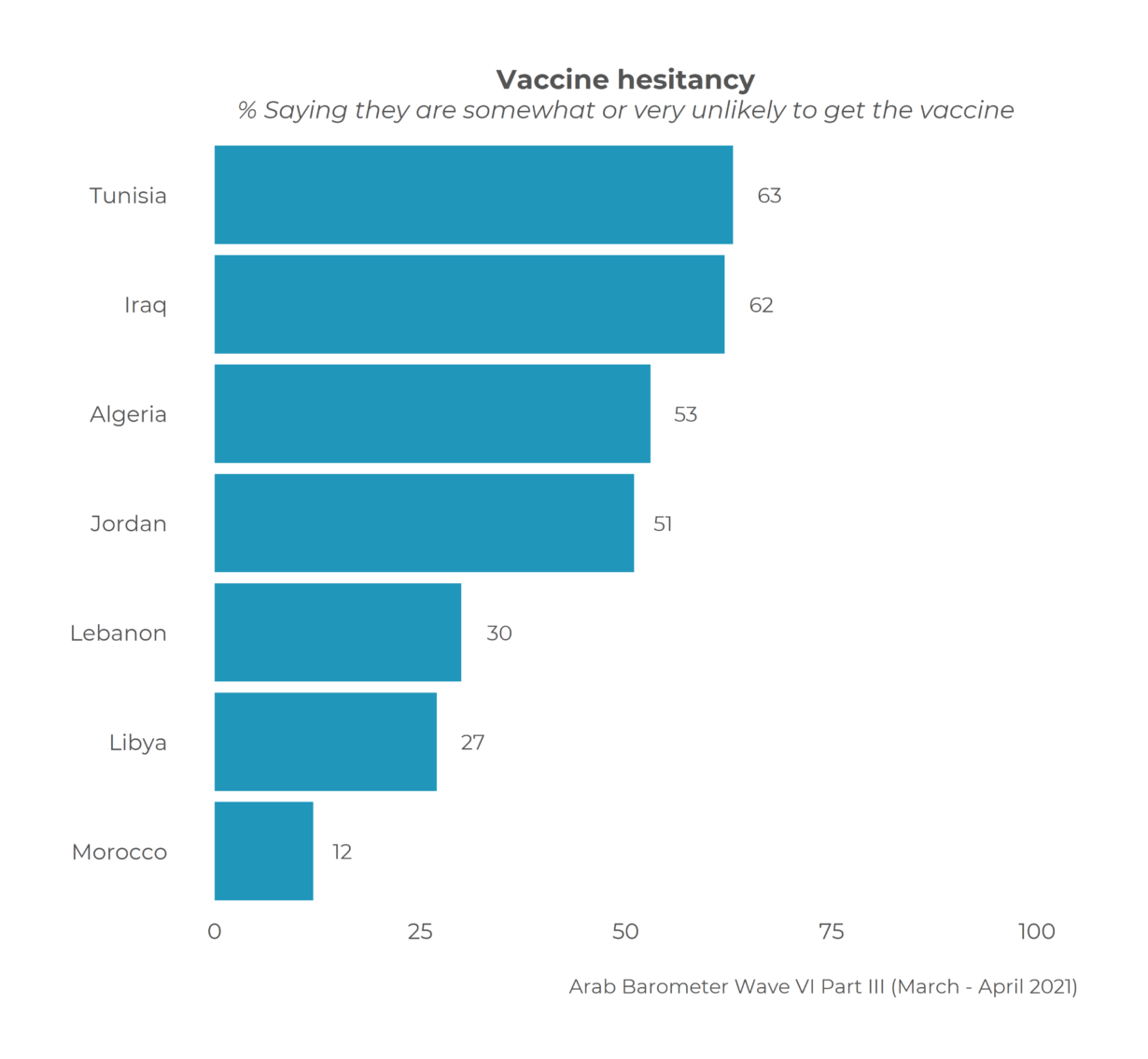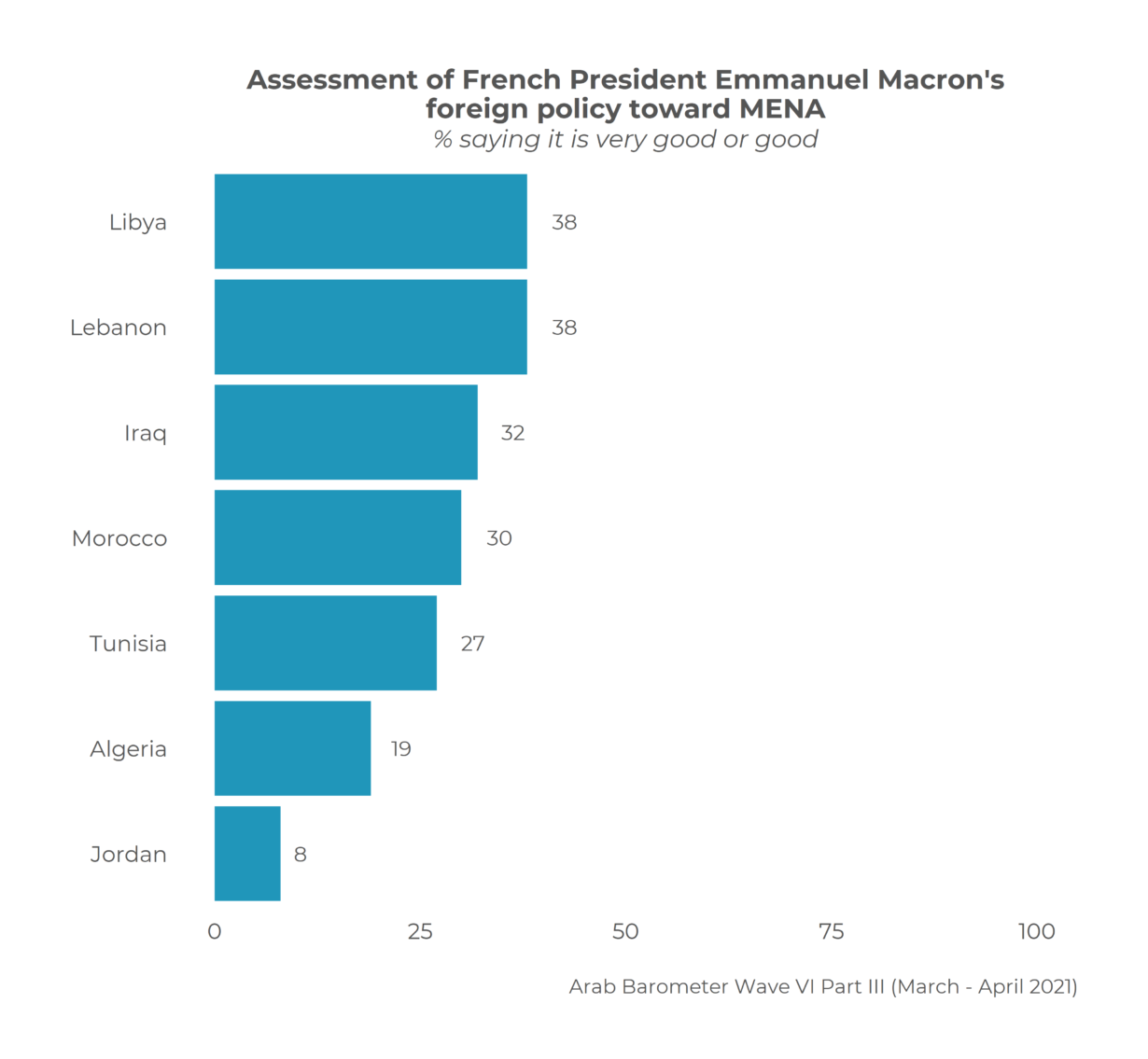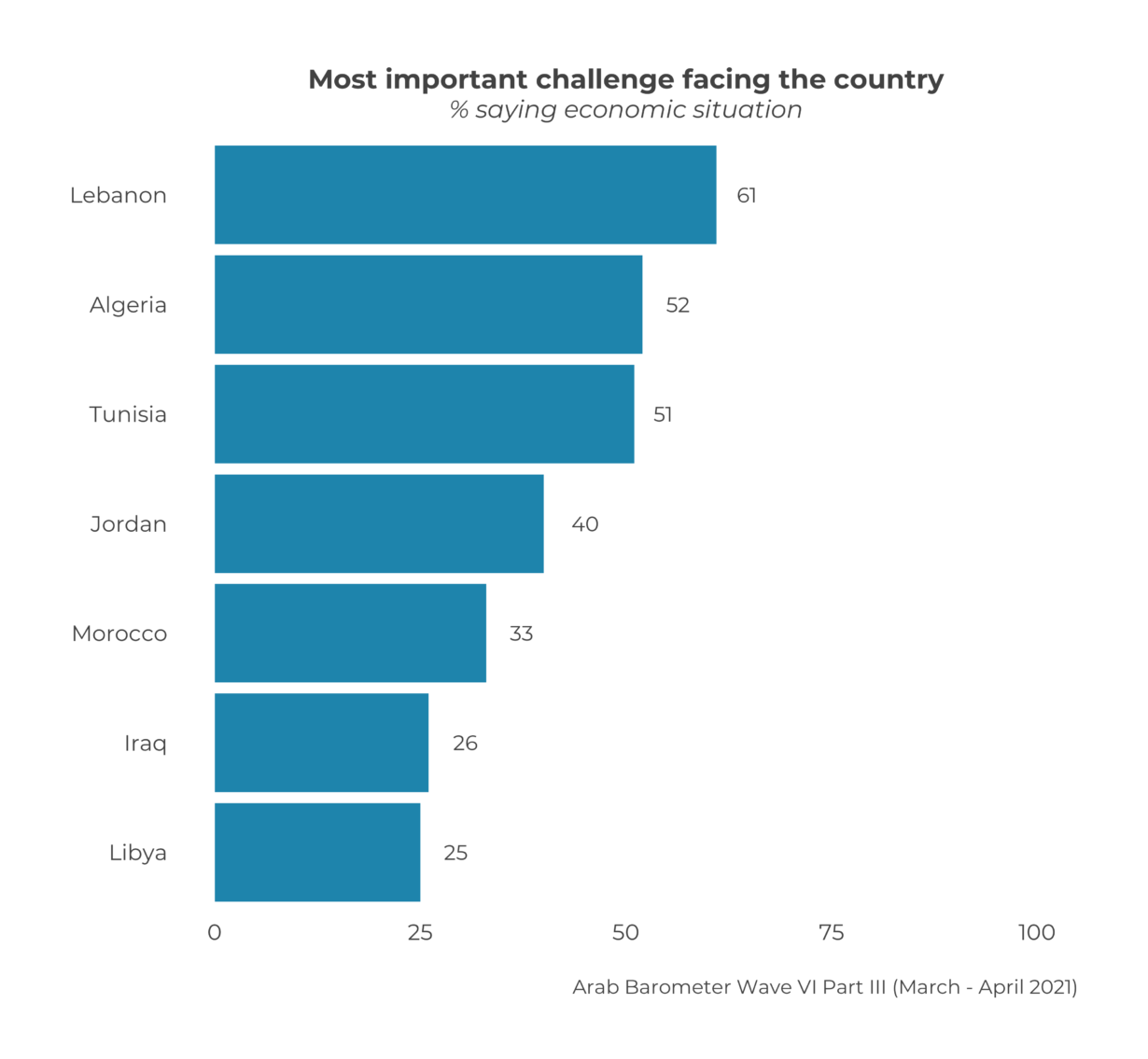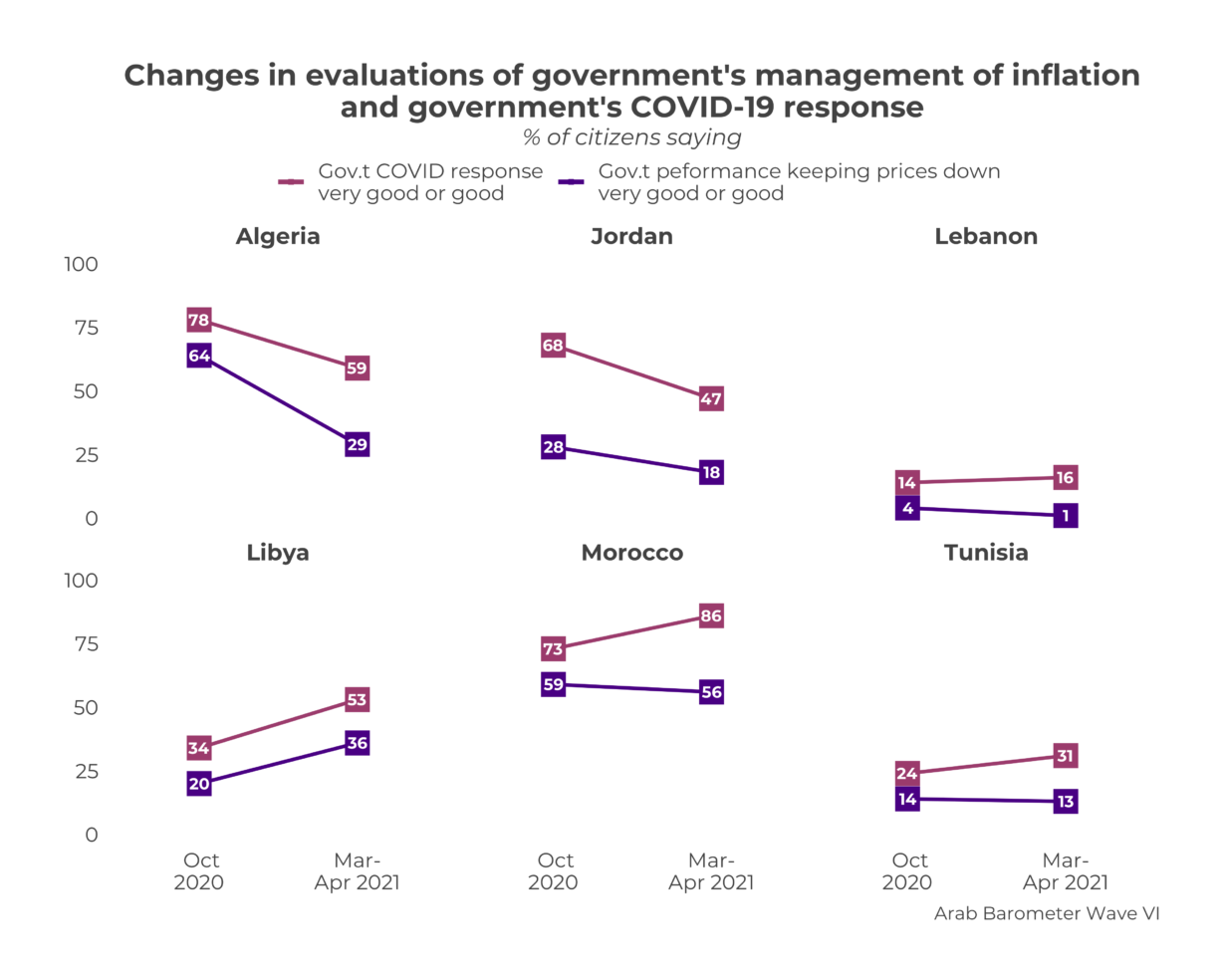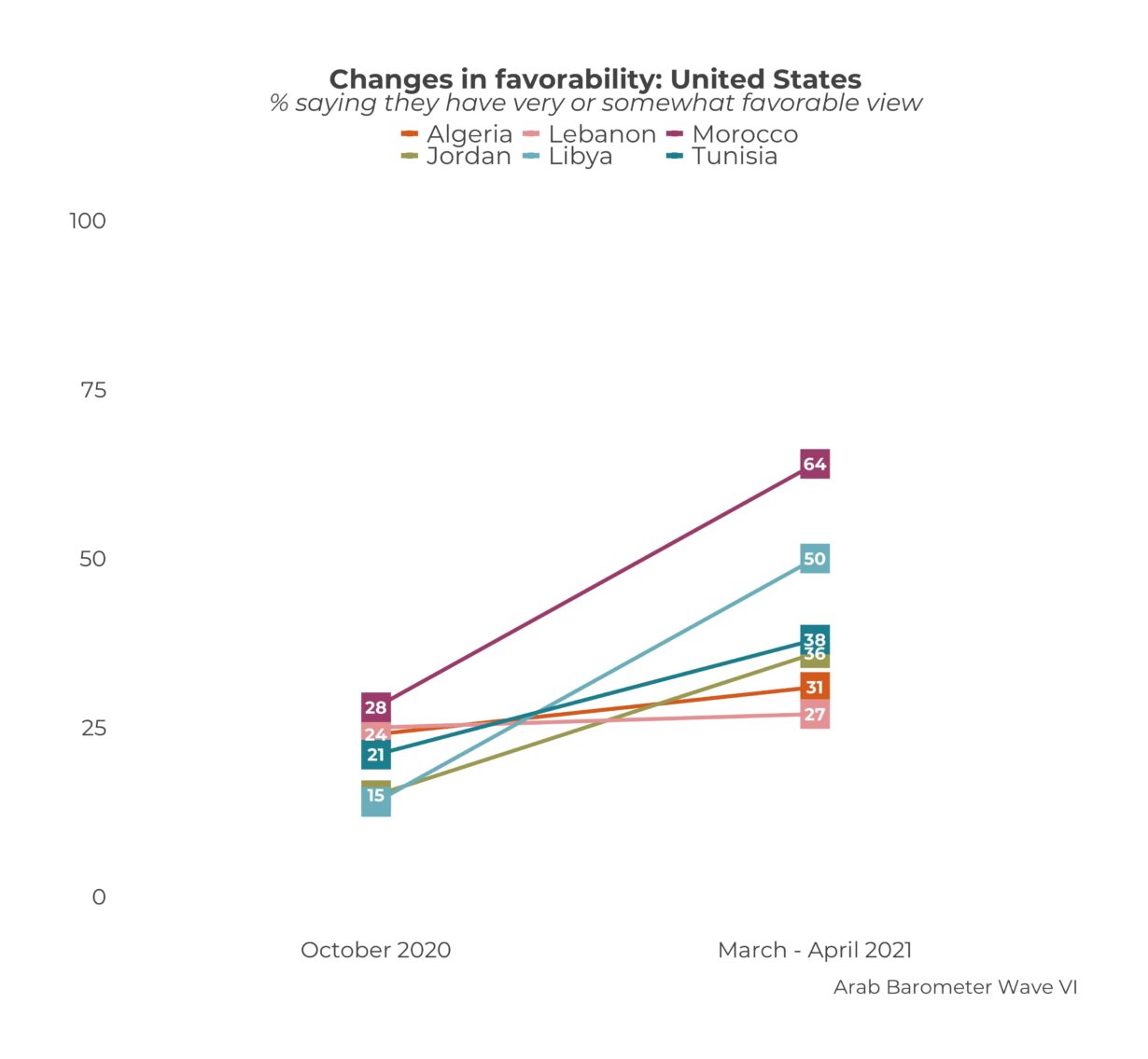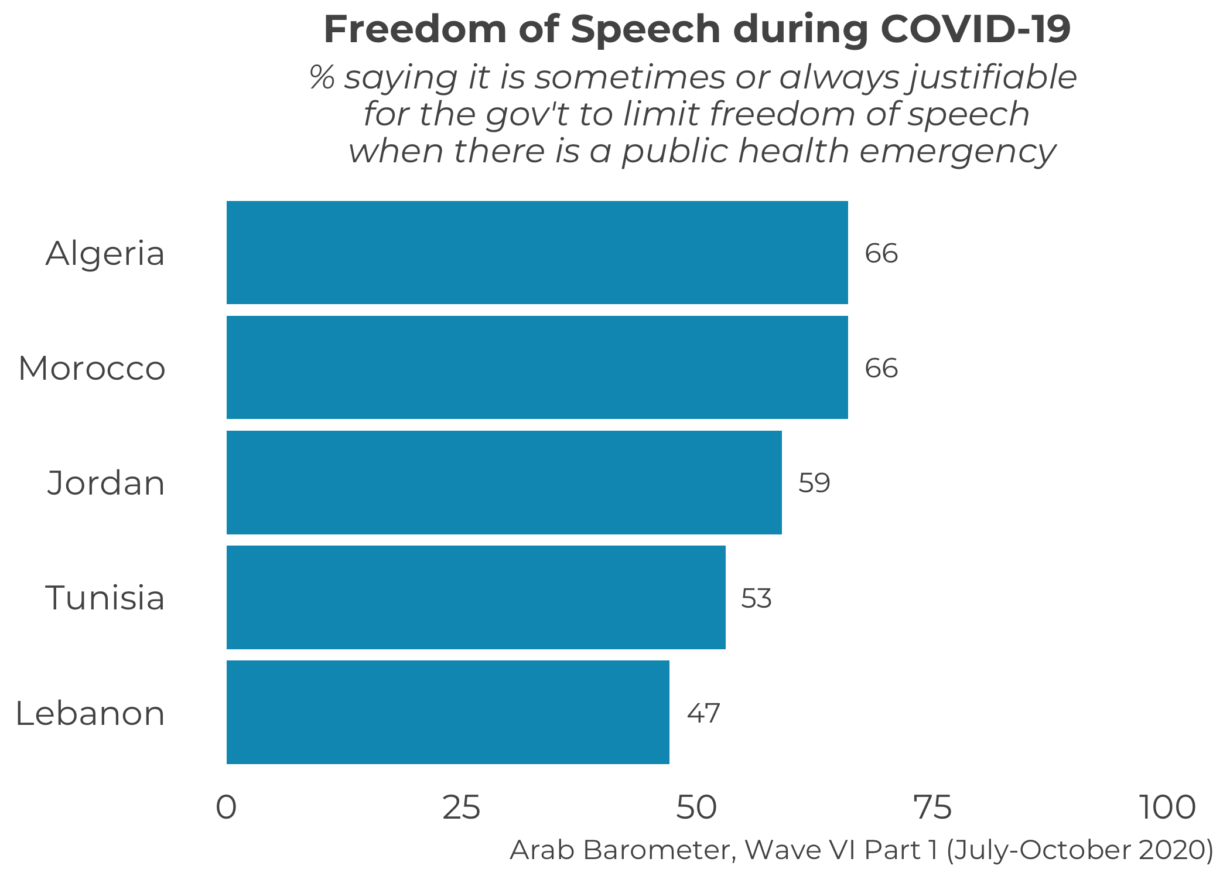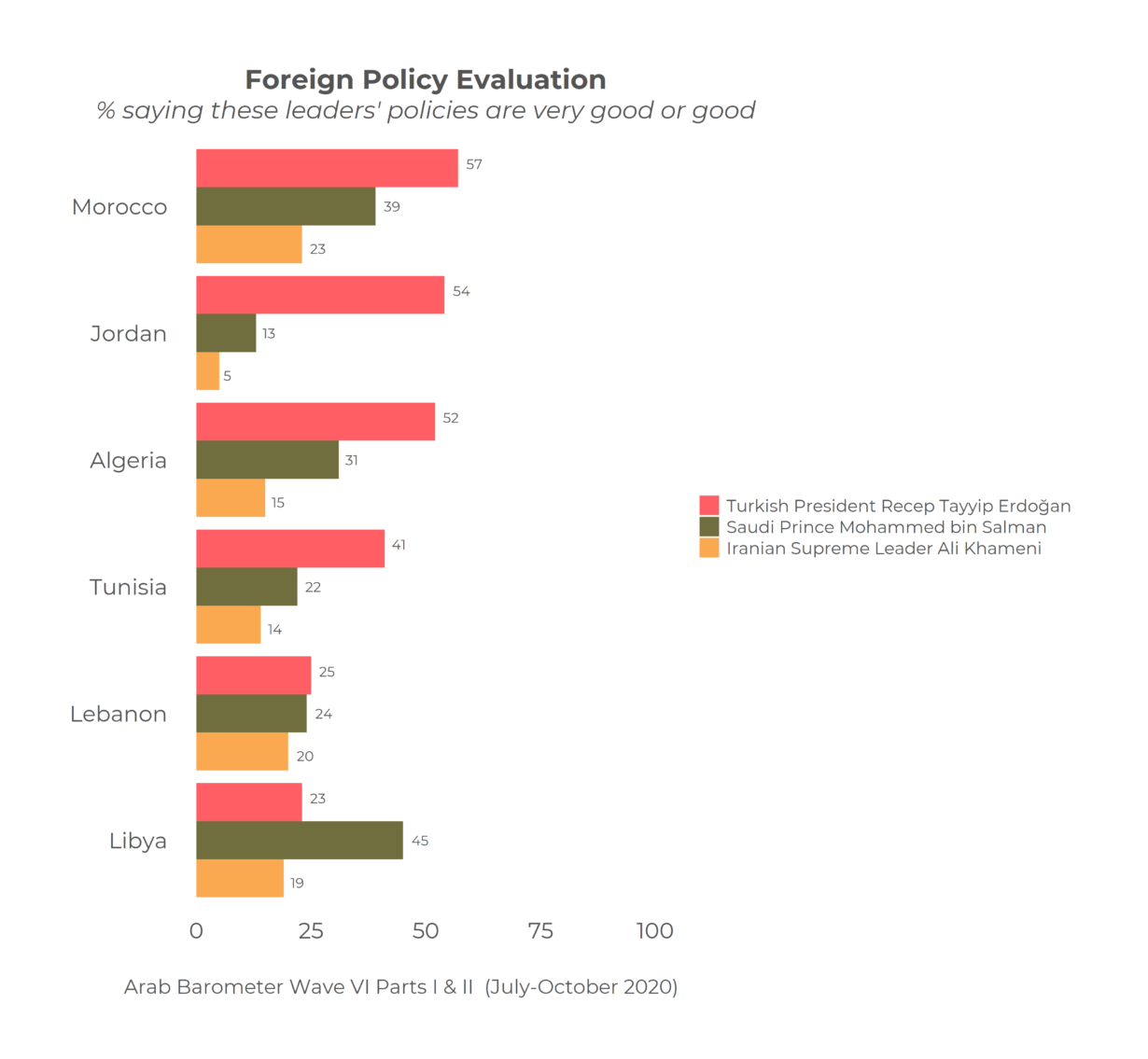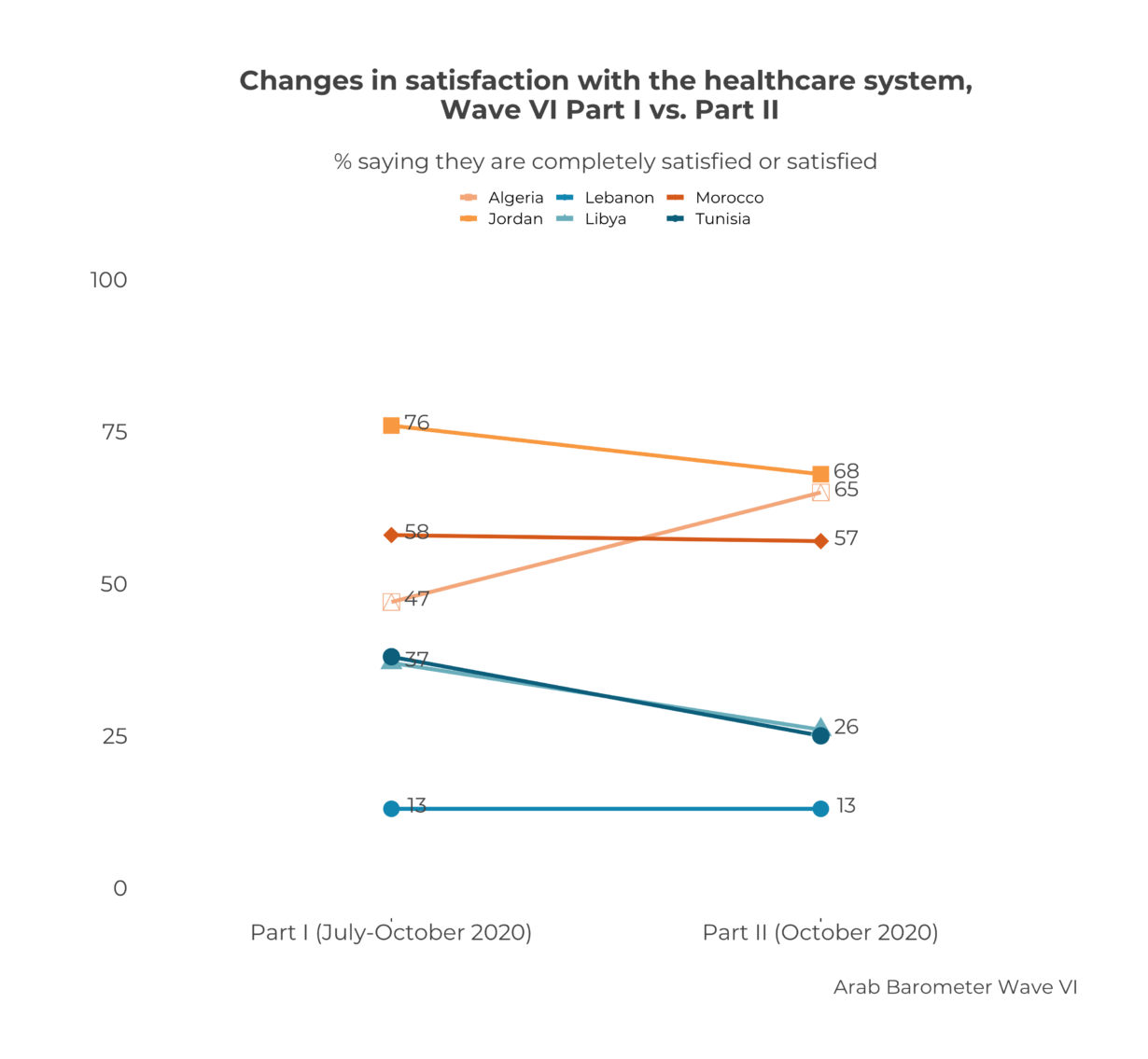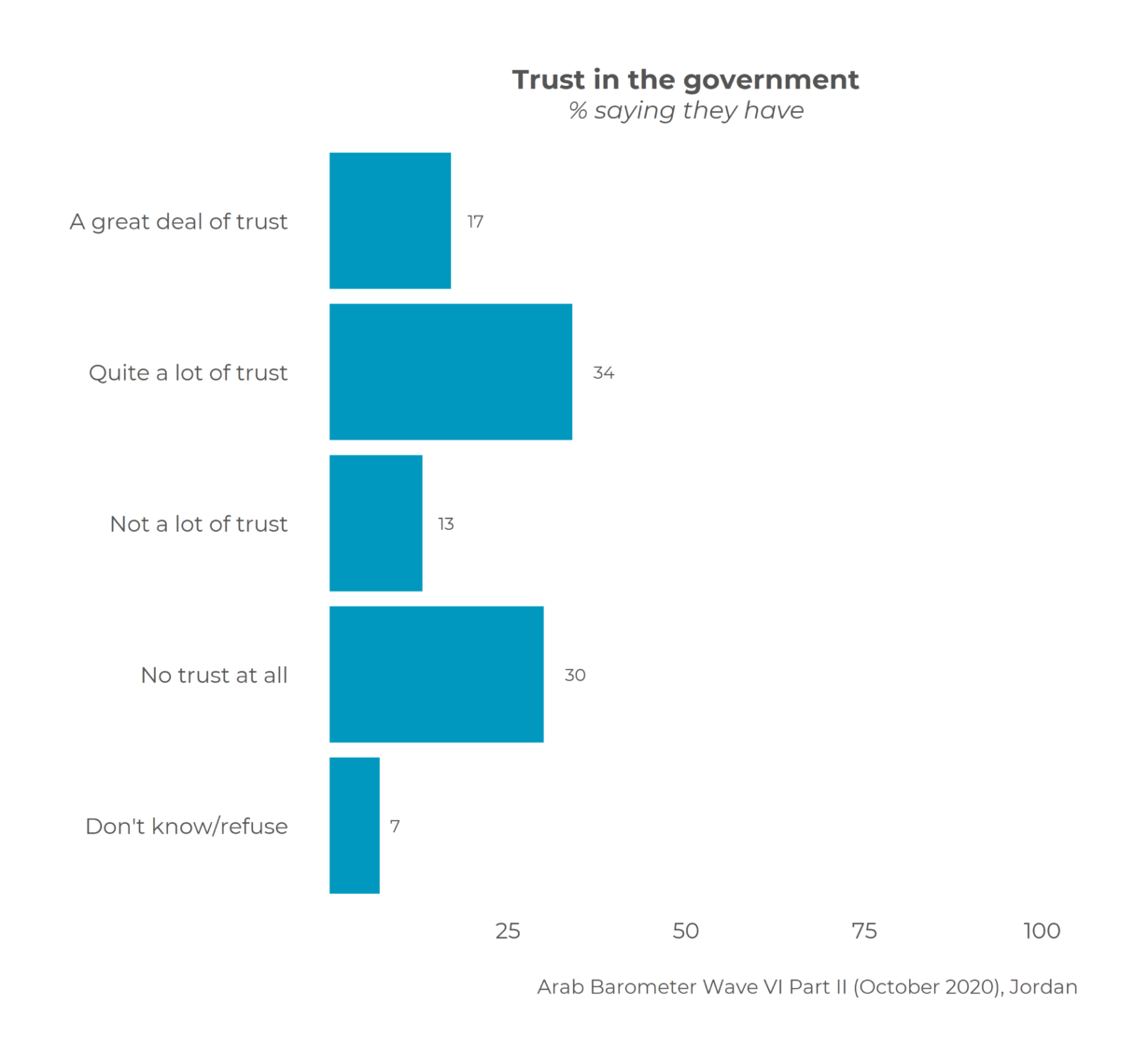As Tunisia’s major political crisis unfolds, some commentators have argued that the country’s citizens never wanted democracy in the first place. However, data from Arab Barometer presents a different picture. In recently conducted surveys from the Arab Barometer’s sixth wave, a majority of Tunisians say that democracy is always preferable to other forms of government compared to just a quarter…
Tunisia’s protracted governance crisis
Tunisia, often referred to as the democratic success story coming out of the Arab Spring, has experienced what some are calling a coup following President Kais Saied’s decision to dismiss Prime Minister Hichem Mechichi and suspend parliament. Others say that the president has acted legally under article 80 of Tunisia’s constitution, setting up a significant constitutional crisis. Rached Ghannouchi, the…
Bearing the brunt: COVID’s impact on MENA women at home and at work
The COVID-19 pandemic did not affect everyone equally; every region of the world has reported on the gender disparity of the virus’s toll. This is of particular concern in the MENA region, where women’s rights and roles in the public sphere have been limited by both legal and societal norms. Given the pre-pandemic status of women in the MENA region,…
The varying appetites for COVID vaccination in the MENA
MENA countries have differed substantially in their reaction and response to the COVID-19 pandemic. A regional comparison shows richer countries administering larger quantities of vaccines, relative to their population, than the non-oil exporting countries. Arab Barometer’s Wave VI, which concluded its third survey in March-April 2021, has revealed another troubling trend: vaccine hesitancy among large swaths of the MENA population….
MENA Pulse on France & Macron
France has a long history of engagement with MENA, including as a colonial power and through numerous military interventions. More recently, Emmanuel Macron has sought to increase France’s influence across MENA. In 2020, he personally interceded to try to find a solution to the crisis in Lebanon and has worked to deepen engagement with other countries in the region. Nevertheless,…
Fact Sheet: MENA Region Economy
Background: In the sixth wave of Arab Barometer, we interviewed citizens from seven countries in the Middle East and North Africa within the period of July 2020 – April 2021, tracking citizens’ evaluations of their economic situation during the unprecedented times of the COVID-19 pandemic. About AB6 How we did this. The following factsheet sets out some of the main…
MENA citizens to their governments: “Health before wealth”
“Health cannot be bought at the supermarket,” Hans Rosling once reminded audiences in 2006 when discussing health data and development in countries in the Arab region, among others. The famed physician and former professor of international health at Sweden’s Karolinska Institute continued, “You have to invest in health. You have to get kids into schooling. You have to train health…
The Biden Honeymoon: Changing views of the US across Arab Barometer Wave 6
In our surveys last fall, China was a clear winner in the competition between great powers for hearts and minds of ordinary citizens in the Middle East and North Africa (MENA). In all countries surveyed, China was viewed far more favorably than then United States. However, this finding has changed over the past six months, with U.S. favorability increasing dramatically…
Is COVID-19 compelling Arab citizens to surrender freedoms to their governments?
Efforts to control the spread of covid-19 have prompted governments across the Arab World to pursue aggressive strategies — from closing international borders and imposing curfews, to restricting movement between cities and expanding digital surveillance of citizens. Such measures expose not only the tension between public health safeguards and protecting individual civil liberties; rather, they also reveal the threat of…
Whither Erdogan? Regional Leadership and the struggle for Arab Hearts and Minds
In the rivalry for regional influence, it is not only states that jostle for strategic primacy and public positioning in Arab countries. Regional leaders have also sought to project and represent their states’ foreign policies and aspire for public recognition. Some, like Iran’s supreme leader Ali Khamenei, even have an active and multi-lingual presence on Twitter and other social media…
Citizens weigh in on the health of their healthcare systems in MENA
Of all the crises that have plagued countries in the Middle East and North Africa (MENA) in the past decade, the COVID-19 pandemic stands out in at least one regard: the government in each country was not its primary cause. Yet managing the pandemic was the government’s primary responsibility, and citizens in several MENA countries have mixed appraisals of how…
Eye on Jordan
The latest events in Jordan have prompted a closer examination of the country’s dynamics. Here are the latest figures for trust in government, satisfaction with government performance, and satisfaction with education and healthcare according to Arab Barometer Wave 6 data that was conducted in late 2020. Our latest survey findings supplement previous analysis on Jordan by Dr. Abdul-Wahab Kayyali using Arab…
Topics
- Charity2
- Corruption115
- COVID-1969
- Democracy41
- Discrimination14
- Economy228
- Education52
- Environment37
- Extremism19
- Freedoms51
- Gender Issues160
- Governance255
- Health45
- International Relations195
- Labor Market36
- Media31
- Migration64
- Political Institutions214
- Political Participation35
- Political Systems63
- Refugees6
- Religion118
- Security34
- Social Justice45
- Wellbeing2
- Youth76
